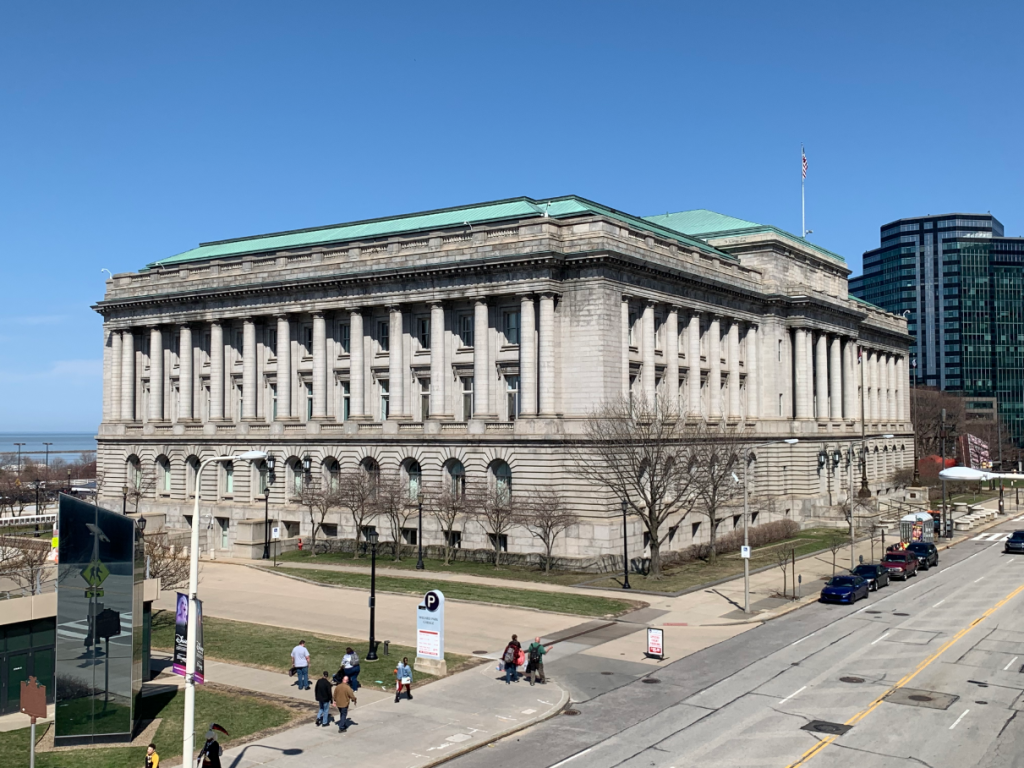
A newly introduced bill in Cleveland City Council aims to strengthen the city’s approach to mental health emergencies, nearly a decade after the tragic death of Tanisha Anderson in police custody.
Jacob Johnson vividly recalls the night when he and his family called for assistance from the Cleveland police for his aunt, Tanisha, who was experiencing a severe mental health crisis. Tragically, this call led to a confrontation with officers, resulting in Anderson’s death shortly thereafter at the age of 37.
During a recent press conference, Johnson spoke passionately about the proposed legislation, stating that “Tanisha’s Law will ensure that no other family has to suffer as we have, not just that night but for the years that followed without her.” He described Anderson as a “beautiful spirit” who left this world too soon.
The law was introduced on Monday by Cleveland City Council Members Stephanie Howse-Jones, Rebecca Maurer, and Charles Slife. At the press conference held at Case Western Reserve University’s School of Law, Howse-Jones explained that the law aims to enhance Cleveland’s existing initiatives for addressing emergency situations involving individuals in mental distress.
If enacted, the legislation would establish a new Department of Community Crisis Response dedicated to managing these efforts.
The development of the bill was supported by Case’s Student Legislative Initiative of Cleveland (SLIC) in collaboration with Tanisha’s uncle, Michael Anderson, who reached out to Howse-Jones in 2022.
Anderson’s death was ruled a homicide by the Cuyahoga County Medical Examiner in 2014, but subsequent investigations led to conflicting conclusions. A different coroner attributed her death to partially blocked arteries, and a grand jury ultimately chose not to indict the officers involved. The Anderson family filed a lawsuit against the city, resulting in a $2.25 million settlement in 2017, after which the officers faced disciplinary actions.
Since Anderson’s death, the Cleveland Division of Police has implemented crisis response training for officers starting in 2020. New recruits undergo eight hours of crisis response training at the police academy, while officers with three or more years of service can participate in a week-long training program to become Specialized Crisis Intervention Team (CIT) officers. As of 2022, field training officers are also required to complete this intensive training.
Crisis response strategies typically include co-response, where mental health professionals accompany police on calls, and care response, which operates independently of law enforcement.
Tanisha’s Law aims to formalize both approaches. Should the bill pass, it would create the Department of Community Crisis Response to collaborate with various city departments, including Public Safety, Public Health, Aging, and Community Relations, to manage all aspects of crisis intervention.
The department’s director would oversee the mental health professionals involved in the city’s co-response program, which was initiated with grant funding in 2020. Recently, Cleveland City Council allocated $5 million from American Rescue Plan Act funds to expand the pilot program from five to ten teams.
Additionally, the new department would establish an unarmed crisis response team that can be dispatched to situations where individuals are in crisis but do not pose a threat to themselves or others. This team would be equipped to respond directly to relevant calls.
The department would also focus on creating and revising operational guidelines for crisis responses, compiling data for regular reports, and maintaining an online platform for information sharing and collection.
During the press conference, Howse-Jones highlighted the importance of ongoing community engagement and stakeholder discussions before scheduling the bill for a vote. She envisions the Community Crisis Response director as a crucial advocate with significant authority to sustain the program’s momentum.
Mayor Justin Bibb expressed confidence that a robust care response could significantly contribute to reducing violent crime in Cleveland.
Key decisions still lie ahead regarding staffing for the care response, the hiring of mental health professionals versus contracting with external organizations, and the overall financial implications for the city. Maurer noted the necessity of aligning these efforts with the city’s existing consent decree with the U.S. Department of Justice.